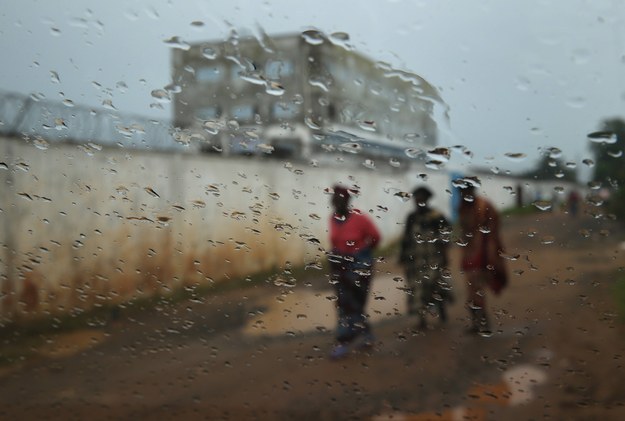Apparently all of us have had a lot to say since Paris. I’ve not had so much to say, until a couple days ago, when all the finger-pointing about who should feel what about people in which part of the world just hit a nerve. I shared something on Facebook which seemed to resonate with a lot of people, so I’m expanding on it here.
On the Internet, we’re all pundits, and it’s incredibly satisfying to sink into the kind of authority that white dudes on TV have been dousing themselves in for generations — the kind of authority that has little afterthought or obligation and just smiles at itself after its 90 seconds are over. Like English verbs, punditry has a mood — its mood is should. Pundits tell us what (they think) should happen. In the wake of tragedies like Paris, punditry takes up compassion, and there are lots of opinions about how we should feel, or how we should show what we’re feeling.
In the days after Paris, we were all pundits. Everyone seemed to have online feelings about how other people felt. The Internet policed our compassion — a task which seemed to leave most of us feeling angry and misunderstood. We hardened into isolated defense of our own general goodness, instead of joining together in mutual concern for the many suffering people in the world — whether those people were in Paris, or Beirut or Burundi or Garissa or northern Nigeria or any other of the real places with real, suffering people that became rhetorical arrowheads in the war of Internet sentiments. It’s hard for me to think of the last time compassion got so self-involved.
The thing is, none of that actually matters. How we feel on Facebook doesn’t matter. How we Tweet what we feel doesn’t matter. Even how we feel in the world doesn’t matter — it’s all useless unless it inspires us to do something.
So here are a few things I think will be useful to anyone for whom the news, and the commentary about the news, inspires feelings strong enough to do a little something. (Yes, just a little something.)
Write to an editor.
From my original Facebook post:
If you want to see more media coverage of something, write to the editor of a place you want to see it and ask for it. And get five friends to do the same. And ask for it straight up — tell editors you’ll read about Burundi or Beirut, period. No need for moral gymnastics: Just demonstrate a readership exists, and I promise you, those of us who fight to cover Burundi and Beirut will have an easier time of doing more stories. I swear, that shit works, even if it’s not as satisfying as firing off a status update.
Share an article.
This isn’t what those bears meant by “sharing is caring,” but in the modern media landscape, an article hardly exists until it’s shared. How much of what you know is happening comes from typing www.homepageofsomemediacompanyorother.com into your web browser? And how much of what you know about comes from your Facebook feed? And how many times have you been duped into thinking something just happened because someone put it up on Facebook this morning? (Chinua Achebe has been dead for almost two years, people, and Garissa happened more than six months ago.)
If you know about something you think other people should, share a link. Facebook, Twitter, whatever. Like it or not, for most of the planet, that’s where our daily engagement with the world outside ourselves starts.
Make it real. Like, IRL.
If you’re worried about Burundi, bring it up with your friends. You can even bring it up when connected to Other Bigger Things, like Paris — but don’t be an asshole about it. “You know what else is bothering me, actually? This thing in Burundi. Have you heard about this?” Chances are the answer to that is no — and then you can explain why you care about it. That’s key: People will care about the things you care about, if you can make them feel why it’s important. And then tell them about a good article you read. Maybe even tag them on Facebook, and they might share it too.
Make a phone call.
Here’s another old-fashioned idea: Care about something? Call a Congressman or a Senator, or a mayor or whoever. I know a reporter busting his ass, not without risk, to cover one of those places everyone said the media doesn’t write about. He’s from Illinois, and here’s what his Facebook status update said:
“I just called the office of Illinois governor Bruce Rauner and said I won’t vote for him in the next election because of his stance on Syrian refugees. Haven’t decided if I’ll vote for anyone, but I def won’t vote for him.” Then he gave people phone numbers to call to do the same. Your representatives are but a Google away, my friends.
Talking to people who agree with you is boring (and the ego boost doesn’t really last that long), and arguing with people who just want to argue, not actually exchange ideas, will only raise your cortisol levels. If you want things to change, pick up the phone.
Thank a reporter.
Some of the social media outrage this week made me angry, because I know reporters who are risking things to go cover the stories The Internet angrily insisted aren’t being covered. No matter what you see TV, it’s not glamorous to risk your life covering a story. When the risk is acute, most of the time, reporters are wondering why the hell they agreed to take it on.
Here’s a guy who was kidnapped in Syria — briefly, as it turned out, but he had no way of knowing that when men with Kalashnikovs ripped his driver out of his car and sped off with him and his colleagues — reflecting on exactly this:
“After spending seven years working in the Middle East and Afghanistan, I returned to the U.S. last October [2013], and this time I’ve stayed. In the months since, I’ve met countless news consumer…surrounded by information they refuse to access or consider.”
Tom Peter, who wrote that article, pointed out that a careers website called journalism the second-worst job in America: low pay, high stress, job insecurity. And that’s not even factoring in the added stresses and insecurities of being a foreign correspondent. As Tom put it, “Why risk it all to get the facts for people who increasingly seem only to seek out the information they want and brand the stories and facts that don’t conform to their opinions as biased or inaccurate?”
If that’s not you — if you’re not (yet?) that cynical — here’s an option: Send a little thank you note.
Sometimes, I get emails from people thanking me for writing about something. And you know what? Those are huge. Those emails let me know that people who aren’t just me care about the thing I’m writing about — that they think this piece of reality, and usually what I write about is some pretty fucked up reality, is an important part of the world to know about, even for readers who are safe, comfortable, and well-fed. Those emails mean the world when you’re out there alone, trying to make sense of a crisis. And I forward them to my editors — subtly building a case for more coverage like whatever I’m doing that moved someone to write.
This work is hard, and unless we make a mistake, reporters are invisible. So a quick note of thanks can go a long way.
Choose who you give power.
The New York Times is everyone’s favorite punching bag. CNN’s another one. They didn’t cover this thing! Or they didn’t cover it well! Or they didn’t… ad nauseum.
But when did we allow the Times become the arbiter of All That Does or Does Not Happen and How? It’s an important newspaper, absolutely. And CNN is a major shaper of how people see things. And both can do better, like every media company in the world.
But there’s lots and lots of other places to get information, and in some cases, those other places do a way better job than CNN or the Times. You can even get your information with a good dose of snark, but you can also find people writing objectively, and passionately, all over the Internet.
There’s an obvious principle at work here: If you care about something, chances are, someone else does too — and there’s someone, somewhere, writing about it. Dig it up, and enjoy it. Learn something from it. Be surprised. Feel connected, to the person who’s writing that article you wanted so much — sometimes taking risks to do it — and to the people that article is about.
We’ve all got better things to do — and to read — than whatever it is we’re so righteously waiting for the Times to give us. So let’s find it, love it, discuss it, and share the hell out of it. And if we’ve tried to do all of that and it still doesn’t exist, let’s start back at the top of the list.
And if I may be so bold, read these people.
Off the top of my head, here are some writers (or outlets) I think are doing the kind of work The Internet thinks isn’t happening. This list privileges people who write in English, and, mostly, for Western audiences. And, alas, mostly about Africa, which I follow better than most places. There are hundreds upon hundreds of journalists for whom the tragedy of any given moment is a local story, and they cover the hell out of it, often at risks far greater than any foreign correspondents on the same story.
- Rafia Zakaria writes with fantastic analytical insight and deep humanity about Pakistan. She’s a columnist for DAWN, an English-language newspaper/media company in Pakistan, and a regular contributor to Al Jazeera America. Anything she writes must be read. To catch up quickly, start with her book, The Upstairs Wife.
- Lauren Bohn was just in Tunisia, chasing stories everyone has forgotten about, and she’s a foreign correspondence tour de force — and half the team (with Elmira Bayrasli) behind Foreign Policy Interrupted, which brings women’s expert voices into foreign policy discussions. (Amazing, in fact, how many of those “uncovered” stories are in fact being covered or commentary-ied by women.)
- Jessica Hatcher is the Western reporter covering Burundi — there during the coup, back for the presidential elections, and digging deep into the ongoing crisis.
- Jason Patinkin is covering the hell out of South Sudan
- Melanie Gouby was in CAR recently — before a new burst of fighting renewed media interest — for Francophone media. (You might remember her as the tenacious reporter whose investigation into British oil exploration of the protected Congolese park, Virunga, got made into an Oscar-nominated film.)
- Alia Malek always offers a new way of looking at the news. She’s on hiatus right now, writing a book, but her Al Jazeera America features are a lesson in finding the real stories no one is looking for.
- My colleague Lester Feder covers LGBT rights globally, with a dedication that makes sure nothing gets missed.
- On Kenya, and East Africa generally, Tristan McConnell just doesn’t quit. And there’s a lot of shit we know because of him.
- Ty McCormick, a staffer for Foreign Policy, is fast making himself a must-read on much of what’s happening in Africa.
- At Al Arabiya, I often find thoughtful, sometimes challenging analysis and commentaries, and their news coverage is pretty comprehensive
- I still think they’re hit or miss, but VICE is indisputably part of the world of foreign coverage, and they leverage eager, dedicated freelancers like nobody else in the business.
- Leave the names of the people or places you think are doing great work in the comments.
And by the way, picking up on a “but where was the coverage?!” points of outage that outraged me: A lot of us covered the terrorist attack in Garissa. That was the biggest news story in the world for at least three or four days, and two dozen or more reporters were working round the clock, for so many different news organizations, to get the story out. Some reporters even managed to go beyond the security narrative that the Kenyan government (and editors’ interests) made dominant, and to get some real, human witnessing into the tragedy. I’m thinking in particular of the way Edith Honan (disclosure: a friend) used Twitter to share photos of the murdered students and a memory or two from the families who were trying to find their bodies at a Nairobi mortuary.
Every major news organization in the world will do some kind of profile of the victims in Paris. But there wasn’t anyone in the world — including the Kenyan press — doing that after Garissa except Edith, and her Twitter obituaries were shared hundreds and hundreds of times.
My point is: The coverage you want is probably out there. Find it, connect with it, and share it, so the people who work so hard to do it can keep on doing it. And keep reading, and sharing, and talking to people in real life, even when the whole world isn’t consumed by a tragedy — because it matters then, too, and if we’re serious about caring, we need to be serious about keeping up a dialogue, even when it’s not on the front pages.





Important points.
On a related note…
” they leverage eager, dedicated freelancers like nobody else in the business”
More like exploit. That’s also an issue worth taking up.
Exploitation is a big issue in freelancing. But most of the people I know working for Vice say they pay really well. It might depend which medium, though.
Another reporter doing good work in Africa is Xavier Aldekoa (@XavierAldekoa). Mostly tweets in Spanish. Thanks for your article and the concrete suggestions.
Excellent blog, thanks so much!
Thank you. And thank you for this: “The Internet policed our compassion — a task which seemed to leave most of us feeling angry and misunderstood.” I found your post because a friend shared it on FB. And I plan to include a link to it in my next blog post.
Thank you for these “gentle suggestions.” I remembered your name from your incredible piece on Garissa – thank you for sharing those families’ stories. Can’t wait to check out the journalists you recommend, and keep up the good work!
Alison
Alison, thanks a lot for your note about my Garissa story. That was a really important one to me, and I’m grateful to know it stuck with you.